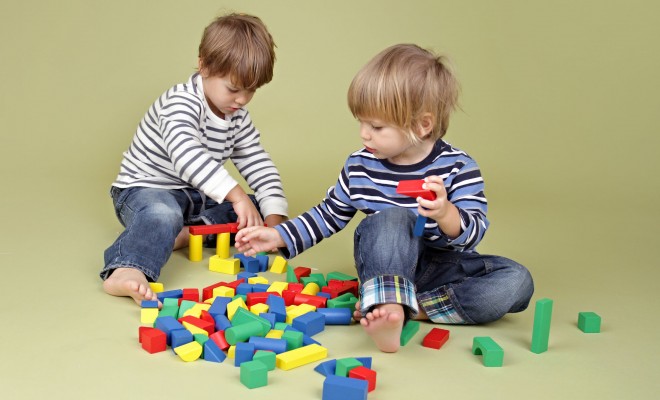
Childcare Environments
Activities to Encourage Children to Share
It’s understandable that most young children find sharing extremely difficult; at this stage they have little empathy for others and also tend to form strong attachments to things. However, being able to share is fundamental to interacting with other people and making friends, so it’s important to find ways of helping them to learn this key social skill and to encourage children to share in your setting or home.
When you’re planning activities to encourage children to share, try to keep these points in mind:
- Be accepting – recognise that they will find it hard to share
- Be realistic –sharing is not a concept that they are suddenly going to ‘get’
- Be gentle – at this stage, it’s about giving them opportunities to practise sharing and guiding them in the right direction rather than forcing the issue
- Be patient – keep going and their sharing skills will gradually develop
Remember that there are different kinds of sharing, so you need to be clear about what you’re expecting from the children. For example, are you asking them to give something (e.g. a biscuit) or lend something (e.g. a toy)? Taking turns is another form of sharing and a valuable way of practising this skill.
Model good behaviour and use appropriate vocabulary to help the children learn how to express themselves. Teach them to ask politely (“please can I play with that when you’ve finished?”) and respond politely (“I’ll have one more go and then you can have a turn”). Explore how they might feel about sharing (“are you worried that you won’t get it back?”) and discuss options for settling disputes (“how about you swap toys in five minutes?”). Point out examples of good sharing and praise the children involved.
Don’t step in immediately if children are in conflict over sharing something; see if they can sort it out by themselves first. If things escalate – even after intervention on your part – then you might consider using consequences, for example confiscating the item. One way of trying to avoid this situation is by using a timer so that each child gets to play with a toy for a fixed amount of time. This provides a good visual cue for the children, as well as ensuring complete fairness.
Be aware that different children may have different motivations for sharing at different times. They might decide to share something because they want to be more popular, or because they don’t want to be told off, or because they genuinely empathise with their friend who is desperate to play with it. Also, bear in mind that children of different ages will respond in different ways; for example, 3 year-olds might find sharing activities easier to do in pairs, while 4 year-olds might be able to work well together in a group.
Here are some ideas for activities to encourage children to share:
Organise a project involving different roles
Get a small team of children working together on a group activity, such as baking, a science project, gardening or creating some kind of artwork. Give the children different roles (e.g. one child measures out the ingredients, one stirs the mixture, another puts it in the paper cases), and swap them around so that they get a chance to perform each role.
Do some role play
Ask the children to use toys or puppets to act out a story that explores the concepts of sharing and turn taking. You could use the characters from a picture book as a starting point, or perhaps begin with a discussion about experiences that the children have had in the nursery or at home.
Play games that involve taking turns
There are plenty of board or card games that even very young children can play in pairs or small groups. These provide excellent opportunities for practising turn taking and interacting cooperatively. Younger children will probably need extra support with this, as they are likely to find it quite difficult.
Play team games
Help the children develop their collaborative skills by playing team games, in which they have to work together in order to achieve a common goal. Parachute games are particularly good for this, for example you could ask the children to spread themselves out around the parachute so that they can help hold it up and keep all of the balls in.
Use music to take turns
Sing songs together, with the children taking it in turns to do the actions/sounds, for example to ‘The Wheels on the Bus’. Or try sitting in a circle and making up a rhythm, with each child beating out their part in turn using shakers or drums.
Do you have any tried and tested methods to encourage children to share? Let us know in the comments below.
EYFS Developmental Milestones – Download Free eBook







You must be logged in to post a comment Login